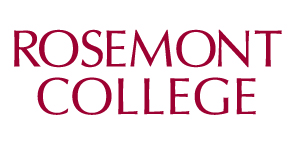FAQs

Here are answers to some of the most common questions prospective students ask. If you have further questions, contact Dr. Kathy Richardson, Program Director, at kathleen.richardson@rosemont.edu or 610.527.0200 x3106.
The Master of Arts in Counseling Program takes 2.5 years of academic study from initial enrollment to graduation depending on the amount of credits taken per semester. Please contact Dr. Kathy Richardson at kathleen.richardson@rosemont.edu or 610.527.0200 x3106 to better understand the duration of the program according to your plan of study.
Monday through Thursday evenings with classes meeting at 5:15 to 7:15 p.m. and 7:30 to 9:30 p.m, with each class having an additional 30 minutes of asynchronous class time weekly. Courses are offered at Rosemont's main campus.
The program provides assistance in identifying specific sites depending on student area of interest for practicum and internship placement, i.e. site contact information. It is your responsibility to initiate the conversation with the potential placement site.
The program will support you throughout this process by practicing interview skills and by reaching out to potential placement sites, if deemed necessary. Both concentrations, School Counseling and Clinical Mental Health Counseling, require 700 hours of supervised experience under the supervision of a faculty member.
If you've completed previous graduate work, you may request the transfer of a maximum of two 3-credit courses. A course may not have been previously applied toward a graduate degree, and it must have been initiated no more than five calendar years prior to requesting its acceptance in transfer at Rosemont.
The course(s) must provide a good match for the relevant Rosemont College program of graduate study, and a grade of a “B” (3.0) is required. All requests for transfer credits must include a copy of the official course description from the College where the course was taken, as well as an official transcript showing the grade earned.
Pass/Fail courses are not eligible for transfer. You may not take courses at other institutions after matriculating at Rosemont College for transfer credit.
Non-matriculated students are not fully accepted into a degree granting program. If you want to take courses in the graduate counseling program, financial aid is not available. A maximum of 12 credits may be taken as a non-matriculated student.
Course selection for the fall, spring, and summer sessions must be made in consultation with a program advisor, either in person or by email. The Office of Graduate Studies will subsequently process course registrations.
Graduate students enrolled in a degree-granting program of study, who are pursuing at least half-time coursework (two courses in the fall or spring; one course in each summer session), are eligible to apply for tuition assistance in the form of Stafford Loans.
A limited number of competitive Graduate Assistantships are also available. Rosemont offers several tuition management options, so you can spread your payments out over the course of your program.
